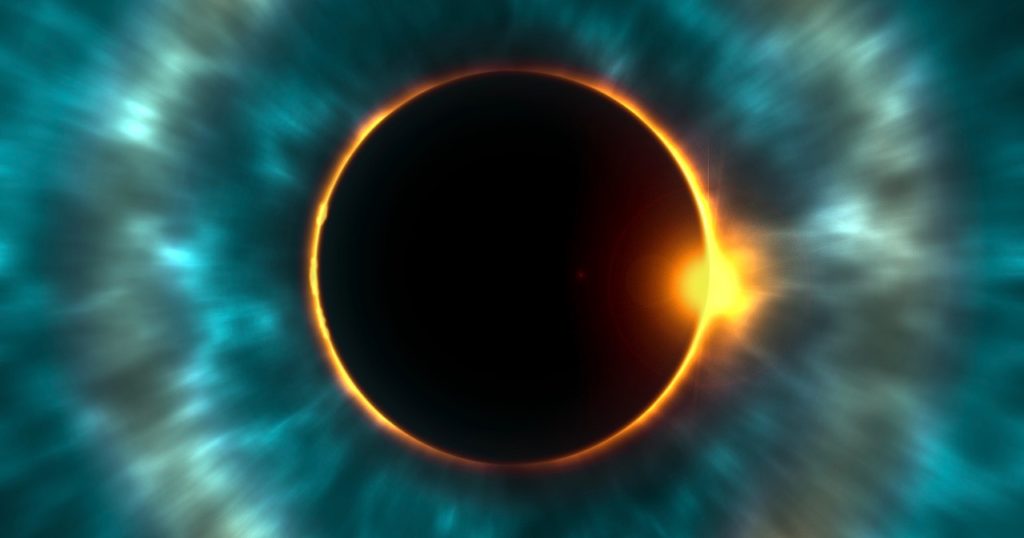David Coppedge raises an important point about “timing,” in addition to “tuning”:
Often in movies a scene depicts some highly improbable event on which the plot pivots (see some example below). Viewers suspend disbelief for the sake of entertainment while knowing that the coincidences are matters of contrivance by screenwriters. In real life, though, how many coincidences would it take to convince a reasonable person that something non-random is going on?

I’ve witnessed two total solar eclipses so far, in 1991 and in 2017 (another is coming to America in 2024). I concur with Guillermo Gonzalez that a total eclipse “summons all the senses” and becomes one of the most emotional celestial events one can experience. Many have noted the remarkable coincidence between apparent sizes of the moon and sun from Earth that make perfect total eclipses possible. Moreover, the size of the sun and the moon are intimately tied to the habitability of the Earth. As a G2 main sequence star, our sun’s size and temperature determines the radius of the habitable zone where liquid water can exist. And the moon plays vital roles in governing the ocean tides and stabilizing Earth’s tilt. In The Privileged Planet, co-authored by Jay Richards, Gonzalez noted that “the requirements for complex life on a terrestrial planet strongly overlap the requirements for observing total solar eclipses” (p. 7). As they further argue, these requirements also overlap with the ability to do scientific discovery.
A Gondola on Saturn
Gonzalez calculated all possible instances of eclipses between bodies in the solar system, 64 in all. On page 11 of The Privileged Planet he included a graph of the results: the only other possible eclipsing body the right size to produce perfect eclipses is Saturn’s tiny moon Prometheus. If one were to be riding a gondola in Saturn’s cloud tops at the right position, one might get a half second total eclipse as Prometheus crossed the sun. On Earth, by contrast, the duration of totality can last up to 7.5 minutes.
But don’t forget “the rest of the story” about Prometheus. Gonzalez notes that its “highly elongated shape compromises the view of the chromosphere” (p. 10). Sure enough, when the Cassini mission, on which I worked at JPL, took photos of Prometheus, its irregular potato-like shape was revealed in detail. Prometheus would never, therefore, be able to cover the sun exactly. That leaves Earth alone as the only place in the solar system where a perfect total eclipse can occur. In the Privileged Planet documentary, Gonzalez remarked, “the one place that has observers is the one place that has the best eclipses.”
Getting the Right Moon at the Right Time
But there’s another aspect of this “coincidence” not often discussed: the moon is slowly moving away from the Earth at 3.8 cm per year (The Conversation). Over time, the moon would be too far away to exactly cover the sun’s disk. After that, all eclipses would be annular. Simultaneously, Gonzalez points out, the sun’s diameter is increasing. “These two processes, working together, should end total solar eclipses in about 250 million years, a mere 5 percent of the age of the Earth” (p. 18). But consider too that eclipses will become progressively shorter long before that deadline, and therefore less useful for scientific discovery. On the other hand, if we can extrapolate the recession speed far into the past, the moon would have appeared too big to produce some of the special effects that eclipse watchers and scientists love, like Bailey’s beads, the flash spectrum, and the “diamond ring” effect. We can witness perfect solar eclipses, Gonzalez concludes, during a “fairly narrow window of Earth’s history, including the present” (p. 9).
The narrow window for perfect solar eclipses leads us to consider the matter of timing as evidence of design. Where else are coincidences of timing discernable?